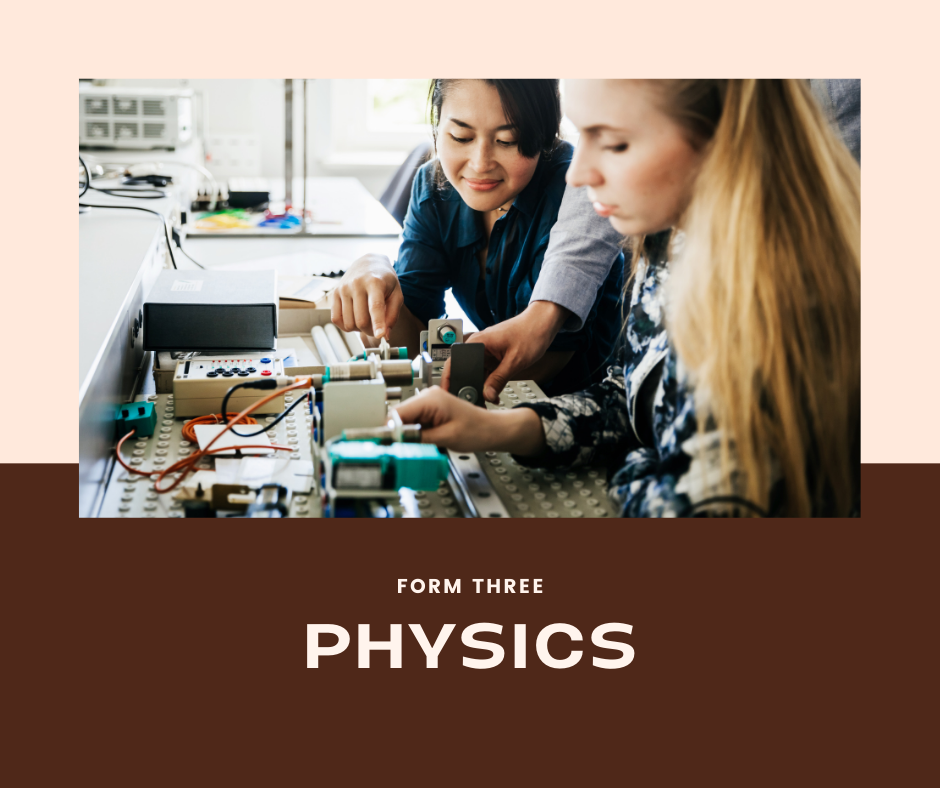What i will learn?
By the end of this course, students will:
- Understand and represent scalars and vectors, and perform vector addition.
- Apply the conditions of equilibrium to solve problems involving moments and the centre of gravity.
- Analyze circular motion and understand the concepts of angular velocity and centripetal force.
- Understand the principles of gravity and apply gravitational concepts to solve problems.
- Explore fluid dynamics, including viscosity, buoyancy, and Archimedes' principle.
- Understand thermal physics concepts such as heat transfer, thermal expansion, and the basics of thermodynamics.
- Analyze wave behavior and optical phenomena including reflection, refraction, and the use of lenses.
- Explore electric fields, electric potential, and capacitance, and their applications in real-world scenarios.
Join us in Physics Form Three as we explore the fascinating world of advanced physics, enhancing your understanding and preparing you for future academic and career pursuits in science and engineering.
Requirements
To ensure a successful learning experience, students are expected to meet the following requirements:
- Completion of Physics Form Two: Proficiency in fundamental physics concepts covered in Forms One and Two.
- Basic Mathematical Skills: Proficiency in arithmetic, algebra, and geometry.
- Notebook and Stationery: Keeping organized notes and solving practice problems.
- Scientific Calculator: Access to a calculator for solving numerical problems.
- Internet Access: Reliable internet connection for accessing online lessons and resources.
- Curiosity and Interest in Science: A keen interest in exploring the principles of physics and their real-world applications.
Description
Welcome to Physics Form Three on Edukea! This course continues to build on the concepts learned in Forms One and Two, introducing students to more advanced topics in physics. Through detailed lessons and hands-on experiments, students will deepen their understanding of the physical principles that govern the natural world.
Topics Covered:
- Scalars and Vectors: Types, Representation, and Addition of Vectors
- Equilibrium: Conditions of Equilibrium, Moments, and Centre of Gravity
- Circular Motion: Angular Velocity, Centripetal Force, and Applications
- Gravity: Gravitational Force, Field Strength, and Applications
- Fluid Dynamics: Viscosity, Buoyancy, and Archimedes' Principle
- Thermal Physics: Heat Transfer, Thermal Expansion, and Thermodynamics
- Waves and Optics: Reflection, Refraction, and Lenses
- Electric Fields: Electric Potential, Capacitance, and Applications
